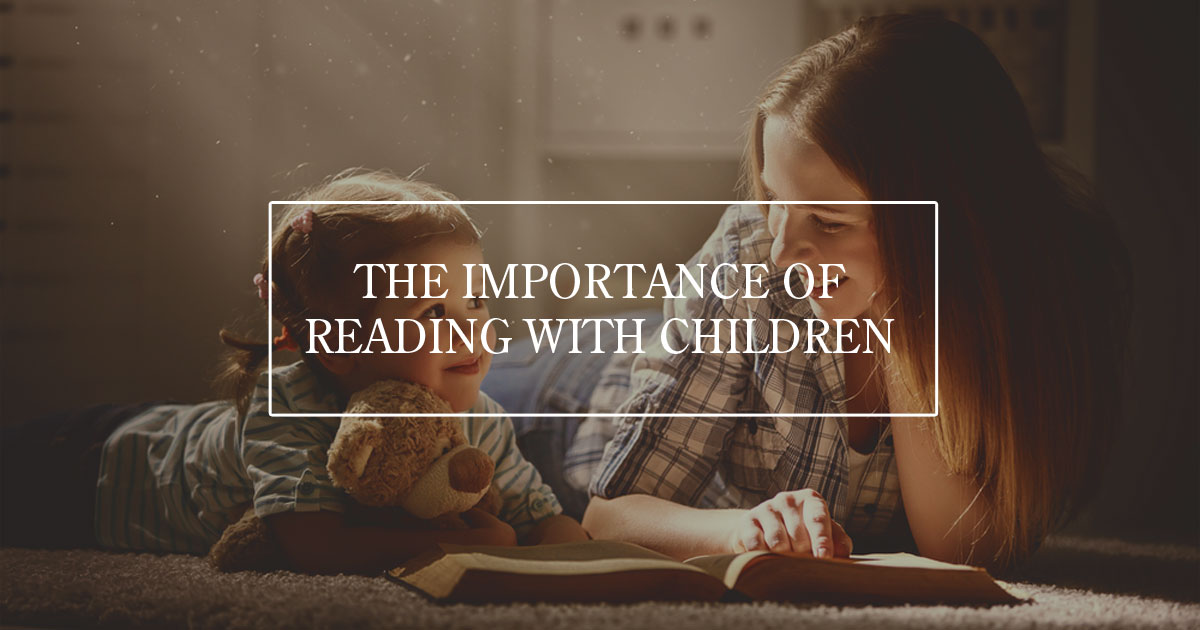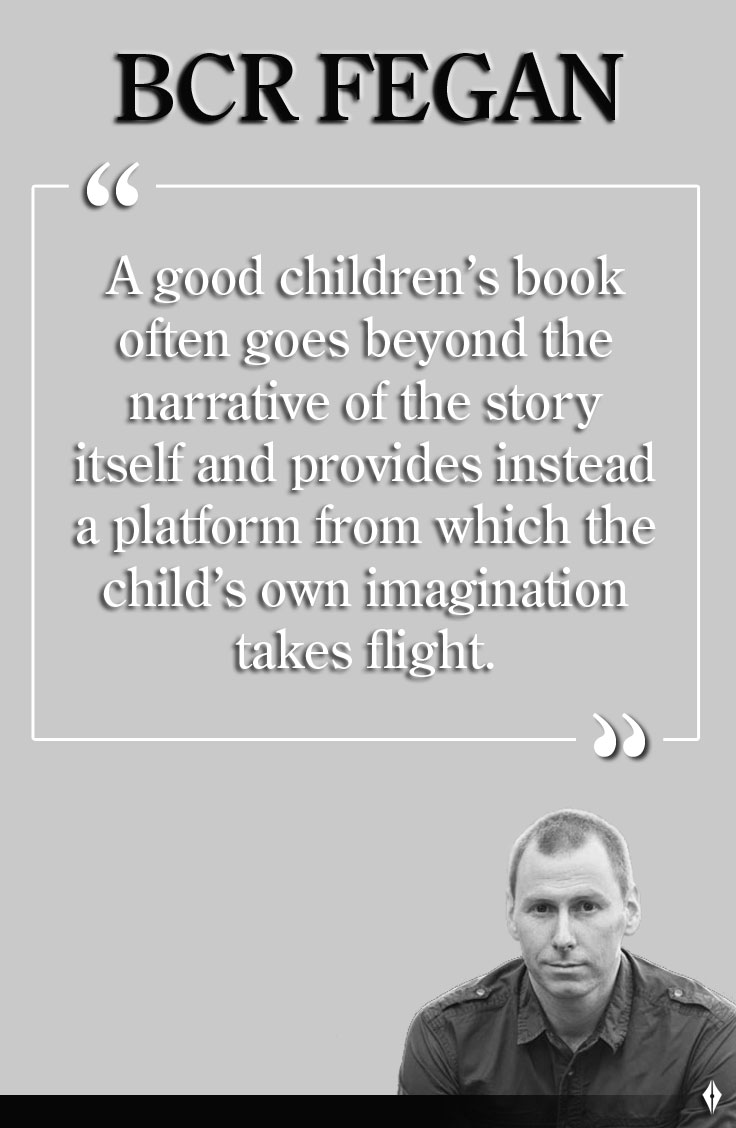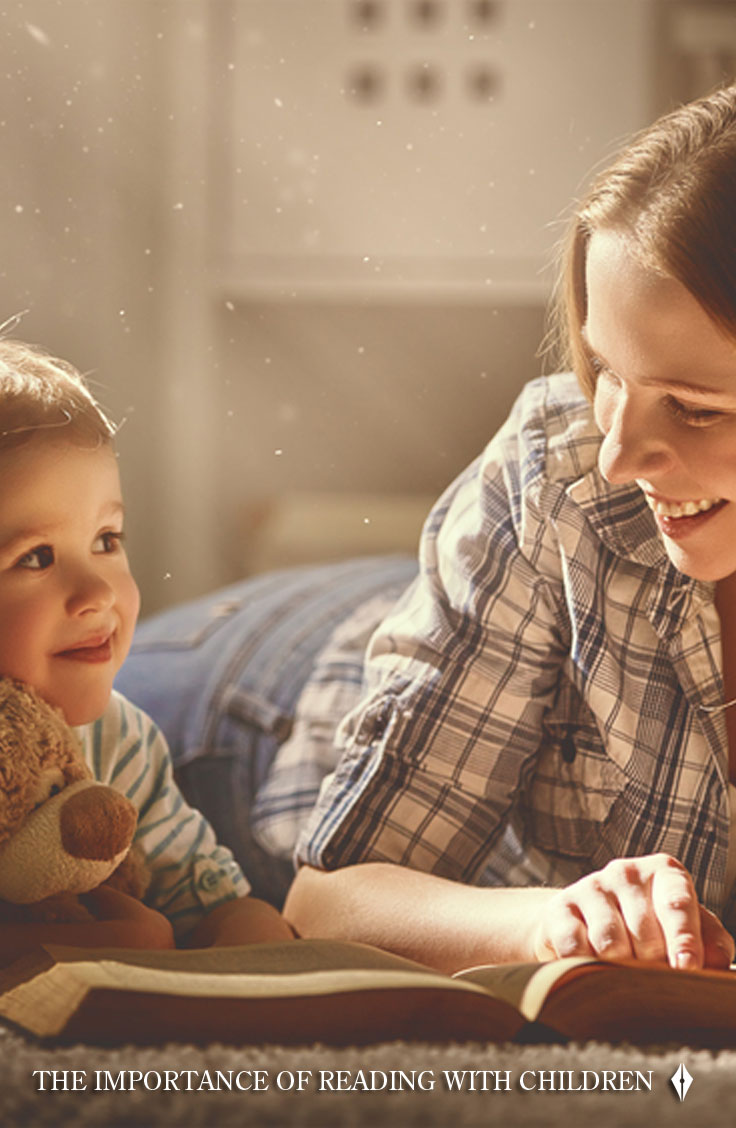The Importance of Reading with Children
ResourcesThe Importance of Reading with Children
“If you want your children to be intelligent, read them fairy tales. If you want them to be more intelligent, read them more fairy tales.” – Albert Einstein
When I was a child I used to love mum reading books to me. We would go on adventures together in the morning, during the day and at bedtime. Of course, computers and phones were definitely not as prominent as they are today, so reading was (and still is) a fantastic way of entertaining children and broadening their knowledge as well. However, as technology began to take over our lives, books began collecting dust and children turned to Halo, Fruit Ninja and Angry Birds. But why do these computer screens attract children more than the infinite possibilities books possess? We will discover potential reasons throughout this blog, as well as suggest ideas to make books once again an essential part of our children’s lives.
The Book never falls far from the bookshelf
The first hypothesis we have to consider is that parents perhaps do not read to their children from a young age so this consequently doesn’t follow suit in the child. One academic suggests her constant reading and that of her husband is the main reason behind her children’s ‘excessive familiarity with long-form written word’. This observation is reinforced through research that shows strong correlations between children who are read to during infancy and children with enhanced literacy development.
Think about your childhood, did your parents read to you often? Has that influenced your current relationship with books? It is a very interesting hypothesis that holds quite reasonable assumptions and may, in fact, prove very true in our lives. A study was conducted to determine whether or not parental storybook reading influenced children’s literacy capabilities. Through a twelve week book club examination, forty-one parents and their children participated in this study which concluded that parents do, in fact, play a great role in their child’s reading abilities. Results indicated that parents who read to their children often positively influenced the child’s relationship with books and consequently proved greater reading efficiency. Therefore, we can conclude that a child’s upbringing does relate directly to their literacy.
While it can be argued that children and teenagers alike do still read extensively in digital form, such as blogs, text messages and Facebook posts, the exposure to critical analysis is not present in these media outlets. If we think about the issue logically, the more time children spend online, the less time there is to spend reading. Research shows that the average child aged six to 13 spends nearly 12 hours per week on the internet and an additional 10.5 hours watching television. As children increase their time on digital media channels they decrease any available time to read a novel. Often, children will struggle to read the required school book, like Shakespeare, and not appreciate the literary complexities involved in the historical playwrights. Hence, reading becomes more of a chore than an enjoyable form of entertainment. Children begin to despise reading time rather than embrace it and consequently, books collect more and more dust.
Nevertheless, reading, I believe, will never die as a literary art form. There are believed to be so many benefits of reading, including: helping to prevent Alzheimer’s disease, increasing your analytical thinking, increasing vocabulary, enhancing memory, increasing your ability to empathise, and research says that people who read are more likely to succeed in their career. These are just a few of the many benefits of reading, not to mention the therapeutic nature of reading a good book. It upsets me to think that many of the children growing up today may not experience the same feelings from the captivating moments, the late nights and the tears shed over and over from the many adventures I have embarked upon throughout simple pages of magnificence. They may never lose track of time in The Neverending Story, never Journey to the Centre of the Earth or discover Where the Wild Things Are.
Books being crowded out by technology
Another reason why children are not reading books like they used to has to do with the busy schedule’s that we all make for ourselves. Like the rest of us, children are also very busy with school, sport and homework. However, parents are also very busy and may not find the time to sit down with their child and read a book. We live in a society where everything is done as fast as possible in the most convenient way plausible. For instance, we now text people instead of calling them, we get takeaway food instead of cooking our own dinner (or even get food delivered), and we have a machine for just about every house chore there is. We have sped up our lives so much that perhaps we have forgotten the meditative art of relaxation. I am sure I speak more than just for myself when I say that I almost feel guilty if I take time out to relax. This is a foreign concept to many adults. Children, on the other hand, are able and certainly willing to relax. However, time spent in rest and recreation is often not spent in books, but rather watching television, scrolling through social media or surfing the net. Our lives have become so connected with others through online media that if we do not know what everyone is doing every day we may feel disconnected to the world.
Psychology professor, Mark Griffiths, at Nottingham Trent University in the United Kingdom researches the behaviour of social media addicts. Griffiths defines six components he believes mark the criteria of an addiction, namely: salience, mood modification, tolerance, withdrawal symptoms, conflict, and relapse. These core areas of addiction represent a process by which an individual passes when they have an addiction. Social networking site addictions can show similar addictive behaviours as substance addictions but must be treated differently. The latter requires a complete abstinence of the substance (addiction); whereas one cannot completely abstain from using the internet in a time where it is such a prominent part of our lives. Further research suggests that internet usage becomes a problem when it is used to relieve stress, depression or loneliness. So how do we combat excessive usage of the internet firstly, and ultimately, how do we get our children reading classic novels again? During the next few paragraphs, I will discuss strategies for doing just that by analysing behavioural, social, biological and psychological research that looks at certain characteristics evident in both avid readers and non-readers.
In a study looking at the correlation between academic performance and social behaviour, results highlighted how children with poor reading skills were often more aggressive in their behaviour in later years. Also, good reading ability was consistent with good social skills. To combat the first problem of parents not reading to their children I will suggest a couple of solutions. To begin with, parents must make a change in their behaviour. They must set aside time specifically to read to their child or to get their child to read to them. While it can be a lot easier watching television together, the child is not getting anywhere near the same benefits he or she would from reading a novel. Research suggests that parents should read to their children from birth as this encourages routine and social interaction. Also when reading, it is important to have the television off as this causes distraction for both the baby/child and the parent, and social interaction is lower as the quality and quantity of words and phrases spoken decreases with the television on. Further research proposes that when children were read a story, their brains were activated in the areas of mental imagery and narrative comprehension. Listening to a story also expands phonological awareness, improves fluency, increases listening skills and promotes family bonding time. Given all of these benefits, it seems criminal not to find time to sit down with our children and read them a story every night.
So what does technology have to say about all this and is it also a good bedtime companion? Thinking back to my childhood, and perhaps yours as well, gives us a bit of an idea about how much technology has intruded on our lives. Every afternoon after school I would come home and play outside for as long as I could before I got called in for dinner. Probably like most children of yesteryear, this was just a normal occurrence. I used to build cubby bases, follow treasure maps, sneak up on animals and climb trees. I did not need parental supervision so my mother was cooking dinner while I was outside playing. Fast-forward to today and the narrative is vastly different. Many children now spend the afternoon and evening watching television and YouTube. As I mentioned, children spend an average of 22.5 hours a week on the internet and watching television. So what are the implications of this technology overdrive? While children rely on technology to fulfil their every need, their imagination, creativity and overall development, including sensory and motor, are declining. Children of today are lacking self-regulation and attention skills, resulting in disrupted classrooms and slower learning. Technology overuse in children has led to child obesity, diabetes, and diagnoses of numerous medical problems: ADHD, learning difficulties, autism, developmental delays, anxiety, depression, sensory processing disorder and sleep disorders, just to name a few. These problems are increasing at an alarming rate and must be addressed now.
For children to achieve healthy development, research suggests four factors that must be included: movement, touch, human connection and exposure to nature. Technology barely supplies any of these core capabilities necessary for development and can therefore be assumed to be detrimental to child development rather than beneficial (see Rowan reference for more).
Life is too busy to relax
The final hypothesis as to why books are not read by children as much as they used to is the infamous time factor. We simply do not have time to sit down and read with our child(ren). The blunt solution to this problem is make time! The benefits of reading far outweigh the benefits of most other forms of entertainment. However, I am not going to lecture on how to parent. In this section I want to suggest a few alternative options that will benefit your child as well. They are not on par with physically sitting down with your child but they do offer a solution when trying to balance our busy lives. First, research has highlighted positive developments from children reading to their dogs. While this seems absurd at first, this action allows the child to read out loud to an audience to develop their fluency and phonological awareness, and gets them away from the television. Audio books are another great option for the car ride. While parents cannot read books in the car, they can play audio books for their children to listen to and follow up with discussion at the end of the story. If your children are old enough to read themselves, schedule a time in the afternoon where they can read instead of watching television, or better yet, get them to read to you while you cook dinner (and do your best to actively listen to the story).
Many parents understandably think that when their child is old enough to read on their own, they no longer need to be read stories or read them to their parents. Often parents will encourage them to read alone to equip them with this skill. However, the benefits of reading to your children are still present as it promotes parent-child bonding and allows the parent to correct any mispronunciation. So, while it is still best to read to your children and have them read to you when they can, there are still ways to encourage reading with a busy schedule.
So, I hope you have learned something from reading this blog as I have from writing it. I hope you can be encouraged to dust off some books on the shelf and show your children the magic among the pages; that they too can fall in love with the stories of our past so much so that they can be inspired to create the classics of the future.
Reference List
Children engaging in storybook reading: the influence of access to print resources, opportunity, and parental interaction. (1996). Newman, S. Early childhood research quarterly, 11(4), pp. 495-513.
Griffiths, M. (2013). Social networking addiction: emerging themes and issues. Journal of Addiction Research & Therapy.
Kids now spend more time online than watching TV. (2017). Roy Morgan Research.
Rowan, C. (2013). The impact of technology on the developing child. The Huffington Post.
Claudia lives by the mantra, ‘ever underestimated’. Claudia’s motivation for joining the TaleBlade team stems from her love of great books, with a penchant for the classics.
Corduroy
Corduroy - Don Freeman Before There Was Toy Story, There Was the Story of Corduroy Bear Corduroy is a stuffed brown bear in green overalls who can think and feel - and wander around - all on his own. He is also the perfectly adorable and quite memorable star of...
Author Review Graeme Base
Graeme Base One would be hard-pressed to seek out a children’s author who combines the ability of writing and illustrating as well as Graeme Base. He has an amazing talent for inserting magic into the simplest of ideas, and for drawing dramatic scenes that...
Picture Book Cover Design
The Importance of Good Cover Design Children’s picture books are all about igniting a child’s imagination. A good cover is what begins this process. It is the promise of adventure, excitement and humour. Like an amuse-bouche at a fine restaurant, the cover...









